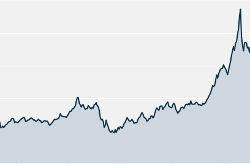

One of the more common questions when it comes to investing in precious metals is whether or not one has to pay taxes when selling their bullion at a profit. Here we will outline some of the general policies on precious metals taxation.
Holdings in precious metals such as gold, silver or platinum are considered to be capital assets, and therefore capital gains may apply. When it comes to tax purposes, the IRS classifies precious metals as collectibles, and thus they may potentially be taxed at the maximum collectable capital gains rate of 28 percent.
It is important to note, however, that these capital gain taxes will not be assessed until one sells the metal. For example, if someone bought 50 ounces of gold at $1,000 per ounce, and gold is currently valued at $1,300 per ounce but he or she still owns the metal and it is held in a depository, then the capital gain has not yet been realized.
The first step in trying to determine whether or not a tax liability exists is to determine your cost basis, or original cost of the metals. Using the example above, the cost basis would be $1,000 per ounce X 50 ounces which equals $50,000. Now, if an investor elected to sell those metals which they purchased for $50,000 at current gold price levels, then he or she would see a gain of $300 per ounce X 50 ounces. This would equate to a total gain of $15,000.
Some other special conditions may apply. For example:
Metals that are received as part of an inheritance use a different method for calculating the basis. In this case, the basis of the metals is equal to the market value of the metals on the date of the death of the person that left the metals to you.
If you receive metals as a gift, then the basis is calculated using the market value of the metals on the date they were originally purchased by the person gifting them to you. If the market value is less than what the person gifting the metals paid, then the basis is calculated based on fair market value at the time the gift of metals is given.
The bottom line is this: If you sell precious metals for more than what you paid for them, chances are pretty good that a tax liability will exist.
Due to the way that precious metals are classified by the IRS, a higher capital gains rate may apply. The maximum capital gains rate charged on collectables is 28 percent. This does not necessarily mean that someone will have to pay 28 percent, however. The actual rate that someone pays is determined by the amount of time the precious metals were held and the payer’s ordinary income tax rate. The investor must also determine if the capital gain is short-term or long-term based on how long they held the precious metals. Short-term capital gains are taxed differently from long-term capital gains.
No. Capital gains from the sale of precious metals would be reported on your annual tax filing with all applicable information. Payment of the tax would also take place on an annual basis.
If one buys precious metals and ends up selling them at a loss, then no capital gain exists. In fact, the investor would now have a capital loss. This capital loss may potentially offset other capital gains within the same tax year or in future tax years. In addition, a capital loss may potentially be used to offset ordinary income with certain limitations and limits. These are issues that should be discussed with one’s CPA or tax professional.
Taxes are an important consideration for all investors. This simple guide outlines some of the potential tax implications of selling precious metals. This is not tax advice, and we are not tax advisers. Always consult your CPA or tax professional for any tax related matters. Although we believe the data in this guide is reliable, we make no guarantee as to its accuracy.